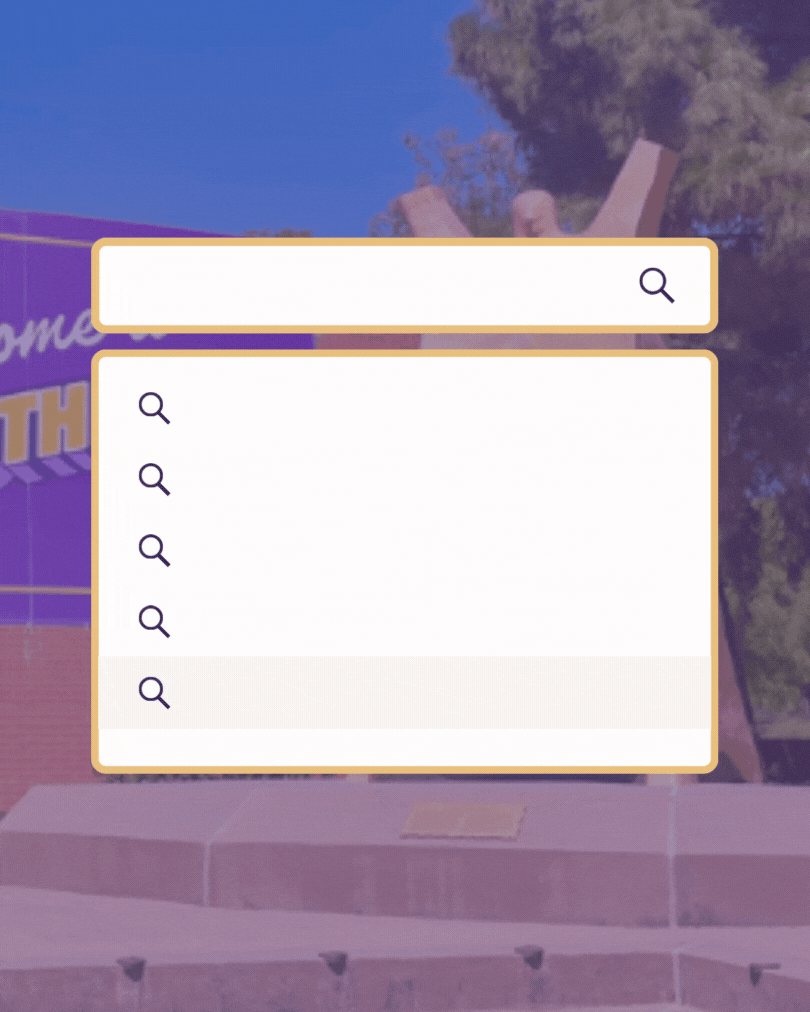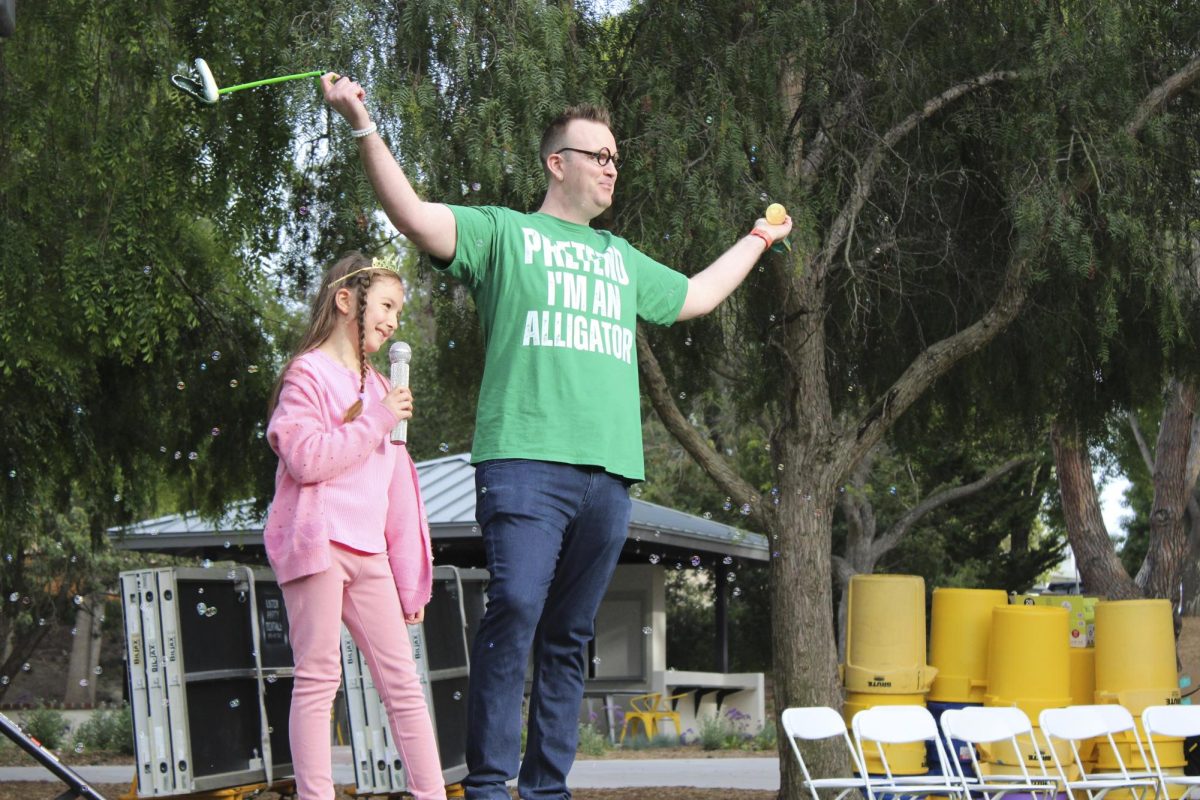California Lutheran University’s Information Technology Services team launched phase one of “Ask Gumby,” the university’s new AI assistant, to faculty and staff on Friday, April 11.
The launch of phase one introduced Ask Gumby’s first Specialized Governed Assistant, the term for an AI assistant with a specific purpose, according to Justin Barkhuff, director of enterprise applications at Cal Lutheran ITS.
According to Barkhuff, the “public information SGA,” which faculty and staff now have access to on MyCLU, is expected to be available to students in the coming weeks.
“We want to provide a general purpose campus AI assistant that can answer most common questions and facilitate completion of common tasks that would include answering public questions, but also personal questions about your financial aid or about the courses that you’re taking or your four-year plan,” Barkhuff said.
Barkhuff, who served as the strategic and technical lead on the development of Ask Gumby, said the assistant will also have the ability to act as an AI tutor that can assist students, faculty, and staff with tasks related to their specific courses. According to Barkhuff, this feature will likely launch for all students and instructors in fall 2025.
“We were increasingly getting questions from operational areas and from some faculty about ways that AI could be used to assist some of that work,” Barkhuff said. “And we were asking that ourselves. When ChatGPT came out, we were wondering, ‘How can Cal Lutheran leverage this?’”
According to Barkhuff, Cal Lutheran’s ITS team also built MyCLU, the university’s digital hub where Ask Gumby now lives. Barkhuff said although ITS has a capable software development team, taking on the task of building Ask Gumby internally would have been too time and energy intensive.
During the search for a company to partner with, Barkhuff said data analytics company Entrinsik stood out because their vision aligned very closely with that of his team at Cal Lutheran.
”Because we had so much clarity around what we wanted to do, Entrinsik actually partnered with us for no cost. Like, it hasn’t cost the university a dime,” Barkhuff said.
In an email interview, Chief Information Officer of Cal Lutheran ITS Zareh Marselian said the costs associated with this project have mostly been limited to labor allocation for the ITS team’s time spent working on it.
Cal Lutheran ITS Programmer I Rishabh Sarin said he worked on the research, development, and testing phases when creating Ask Gumby. After going through different “use cases” in the research phase, Sarin said the team then moved into the development phase, figuring out the best way to integrate the AI technology into MyCLU.
“We want it [MyCLU] to be the one-stop shop for everything. That’s where we want the students, faculty and staff to be when they’re looking for something,” Sarin said.
Sarin, a Cal Lutheran alumni himself, said it is important that Ask Gumby serves not just students, but staff and faculty as well.
According to Sarin, as AI started to grow in popularity, many companies created AI tutors dedicated to assisting students, but seemingly none had a tool specifically for professors and teachers.
Sarin said the Gumby AI tutor geared toward helping faculty and staff will make the process of building courses much more efficient, and can also inform professors of course concepts students are commonly asking Gumby questions about.
According to Barkhuff, the AI tutor will be integrated into Canvas, and therefore will allow for a more personalized experience for students, faculty, and staff. Barkhuff said in order to respect faculty members’ academic freedom, they will have the option to enable or disable the tutor on a per-course basis.
“I have seen different strategies from different universities, many of which, to me, looks like they’re throwing money at the problem,” Barkhuff said. “I think it’s Cal State where they signed a deal with OpenAI where everybody has access to ChatGPT. To me, that doesn’t look like a real solution. For example, Chat GPT is not going to be as good of a tutor for you if it doesn’t know what your homework assignments are or what the syllabus says or what your instructor has uploaded.”
While the AI tutor will have access to course materials, Barkhuff said his team tells the software not to do students’ assignments for them, even if they ask it to.
According to Barkhuff, the AI tutor will be more of a brainstorming tool that will help students think through the process of assignments.
Barkhuff said he and his team will be conducting pilots with faculty over this summer, where he will look to receive more guidance on the AI tutor feature of Ask Gumby.
In an email interview, Marselian said he believes AI will not only benefit Cal Lutheran students while they are attending the university, but also after graduation.
“In a world that is going to be shaped by AI, we owe it to our students to equip them with the tools that will make them successful in their education at Cal Lutheran and prepare them for successful and well-paying careers once they graduate,” said Marselian in an email interview.
According to Sarin, he and the ITS team are actively listening to user feedback to improve Ask Gumby.
“Day one Gumby was the dumbest, but now it’s getting so much better. And especially with the new models that are coming out, we expect to continue growing and getting better,” Sarin said.
In an email interview, Marselian said the ITS team will constantly update Ask Gumby, and that it will learn from its mistakes and the instructions it is given.
“Training AI agents is an iterative process,” said Marselian in an email interview. “AI is not smarter than humans… yet. The more Ask Gumby is used, the more reliable its answers. While its answers are more context aware than a regular web search, Ask Gumby is not the authoritative source for official university business, such as academic advising or financial aid.”
Sarin said the ITS team also plans to grow Ask Gumby’s reach in the future.
“We want to expand it to, like, prospective students, alumni, donors, parents, board, but that will come slowly. We did that with MyCLU too,” Sarin said.
Barkhuff said his team plans to introduce more individual SGAs to specific operational areas on campus in the future.
“I’m really, really excited about what it means four years from now to have an entire campus community and students who have moved entirely through a process of learning from their professors, not only about the subject matter, but they’ll graduate with a full understanding of the practical and ethical use cases for AI within those areas,” Barkhuff said.












